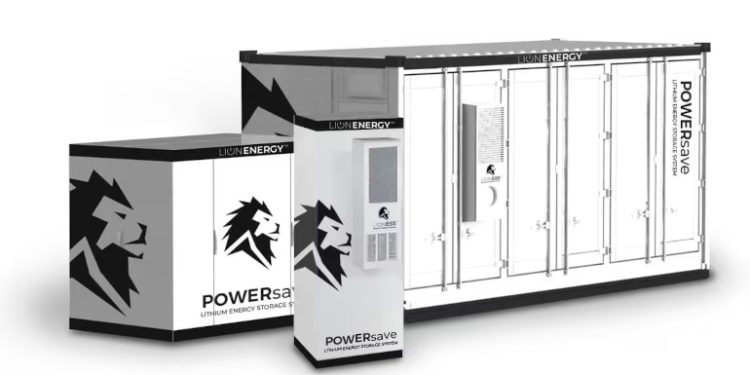Lion Energy is developing a manufacturing line at its Utah facility for battery rack modules (BRM) and large energy storage cabinet assembly. The manual line will be used as a proof of concept for a high-volume production line estimated to produce 2 GWh of monthly energy storage by 2026 to meet growing demand.
Manual, pilot and production lines will be developed over time with the first built at Lion Energy’s Utah headquarters and then creating additional lines at American Battery Factory’s (ABF) Tucson, Arizona, facility. The Utah-based line will enable Lion Energy to produce BRM, a 50-V lithium iron phosphate (LFP) battery pack that will be sold by the company. Once the infrastructure is established, the company anticipates producing more than 18,000 BRM units by 2026.
“Our U.S.-based manufacturing lines will enhance both the national and Utah-based economies, creating well-paying jobs as we manufacture high-quality products here in the United States,” said Tyler Hortin, president and CEO of Lion Energy. “This is a significant step toward bringing all our products to manufacturing in the U.S., which is one of our top priorities that will enhance our nation’s security in the process. Our partnerships with Lyric and ABF give us access to the battery cells and equipment needed to be successful in the seamless production of our energy storage systems as we strive to make energy independence a reality for everyone.”
The manual line will be built first at Lion Energy’s headquarters in American Fork, Utah, and will take up approximately 1,300 ft2 and produce around 200 BRM units per year. This line will be used primarily for design fit/finish integration verification as well as key assembly line machine validation. Eventually, this line will be converted to a BRM serviceability line.
With this line, Lion Energy primarily aims to validate the BRM assembly design, including key components such as the enclosure, fan, lift points and Lion Energy battery management system. Additionally, the company seeks to verify the manufacturability of the units as well as the submodules within them. Throughout the process, the company will determine what level of automation is capable in design, additional detection needed, ergonomics needed and what operator trainings will be required. At the end of the manual line’s use, the company will assess its transition to a serviceability line including cell testing and cleaning as well as end-of-life testing and laser welding.
Composed of 16 cells arranged in submodules electrically connected to create the nominal 50-V pack, Lion Energy’s BRM units are installed in the company’s residential and commercial energy storage systems, such as the Lion Sanctuary and Lion POWERsave. Lyric will provide the equipment necessary for the assembly and manufacturing of these systems while ABF will provide the battery cells that are used in the submodules. Implementing advanced testing processes as part of this manufacturing line, Lion Energy will improve the reliability and efficiency of these units.
By implementing automation and modernized manufacturing methods, the company anticipates a substantial reduction in labor hours compared to manual methods. Additionally, higher wage costs will be offset by this automation and the efficiency gain will lead to cost savings compared to a similar manual assembly line, providing competitive pricing. The line will enable the company to maximize in-house product development and reduce reliance on foreign supply. Moving forward, this enhanced production efficiency will not only allow Lion Energy to better serve its customers but will revitalize domestic manufacturing.
“Lion Energy understands the urgent need for the United States to be competitive and independent in the energy industry,” said John Kem, president of American Battery Factory. “This line makes it possible to manufacture at a reasonable price, be an environmental steward and offer quality jobs to our region. We look forward to supporting this project with our battery cells and facility use as we progress toward the production line.”
News item from Lion Energy


















